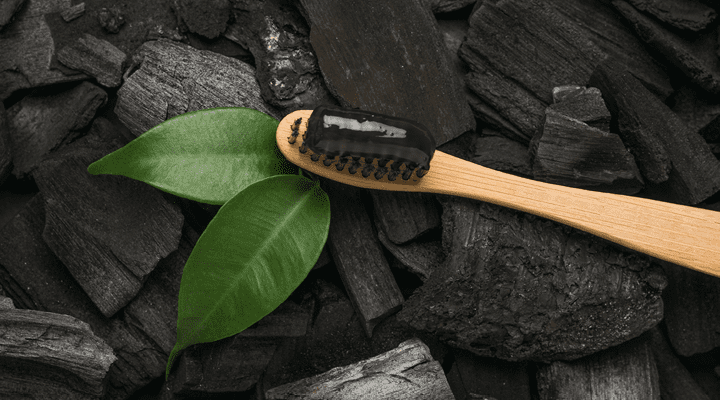The teeth whitening trend has turned black, thanks to activated charcoal. Between brushes and pastes, brands are marketing charcoal as a miracle mouth product. But does the black powder actually make a difference when it comes to oral health? Take a look at the science behind the trend:
What is activated charcoal?
Activated charcoal is very different from the kind you throw on the grill. Charcoal becomes “activated” when it is treated with oxygen at extremely high temperatures. This causes the charcoal to become larger and more porous.
Activated charcoal has many uses including emergency poison treatment, increasing kidney function and reducing cholesterol levels. In addition to medical uses, activated charcoal can also be found in a variety of cosmetics, including toothpaste.
Is activated charcoal good for teeth whitening?
The effectiveness of activated charcoal as a tooth whitening tool is just beginning to be studied. Therefore, there is not a lot of evidence to suggest the product is scientifically proven to whiten teeth.
A new study from PubMed found that activated charcoal is less effective at whitening teeth when compared to alternatives. It is also suggested that it may be less safe due to its abrasive nature.
Another study concluded that activated charcoal toothpaste was no more effective at whitening than the average fluoride toothpaste after 12 weeks of use. Interestingly, the teeth became rougher after using the activated charcoal toothpaste.
If you are considering adding activated charcoal products to your oral health routine, it is a good idea to reach out to your dentist. They may have alternatives that could be a better choice for you.
Is activated charcoal good for teeth?
If you are using activated charcoal toothpaste for whitening, you may be wondering if the product is safe for your teeth.
Unfortunately, the abrasiveness in the product has the potential to do more harm than good when it comes to your teeth. In addition to causing damage to your tooth’s enamel, abrasive products may also lead to other oral health problems such as gum recession and a higher risk of tooth decay.
The bottom line on activated charcoal products
Despite the exaggerated claims of many oral health products, activated charcoal may do more harm than good when it comes to whitening your teeth, although more study is needed. Therefore, some dental health professionals suggest caution when considering charcoal-based products.

